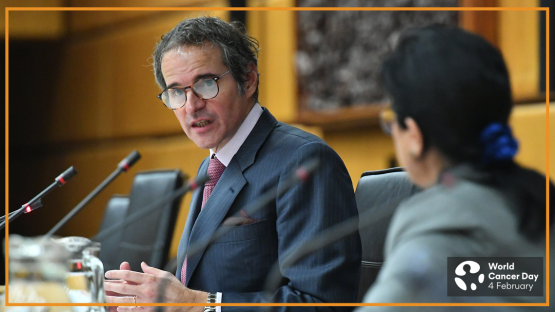Inequality is present in most aspects of life, but in the global fight against cancer the stark difference between industrialised countries and developing nations in their ability to diagnose and treat the disease, is a matter of life and death. Most new cancer cases today occur in low- and middle-income countries, and COVID-19 has further strained the capacities of health infrastructure. Strengthening these health systems is key in the global fights against both cancer and COVID-19.
Marking this year’s World Cancer Day on 4 February, the IAEA held a panel discussion, exploring the impact the COVID-19 pandemic has had on cancer care globally and the support provided by the IAEA to radiotherapy practitioners worldwide. Panelists called for more and urgent action to address the wide gap in diagnosis and therapy access between developed and developing countries.
“This event is an opportunity to be reminded of where we are in our continuous efforts; we can’t stop for a single minute in fighting cancer,” said IAEA Director General Rafael Mariano Grossi in his opening remarks. Speaking from IAEA Headquarters in Vienna to a global audience online, Grossi explained that COVID-19 stretched national medical services, disrupted supply chains and put up numerous other barriers to cancer patients seeking the urgent care they needed. He highlighted that a recent IAEA survey found that in March-April 2020, diagnostic procedures fell on average by more than half in the 72 countries surveyed.
The IAEA supports national governments in using nuclear science and technology to better diagnose, treat and manage cancer. It also helps countries in procuring equipment, training medical professionals and secure resources from donors. The pandemic has not stopped the IAEA in providing support in these areas.






